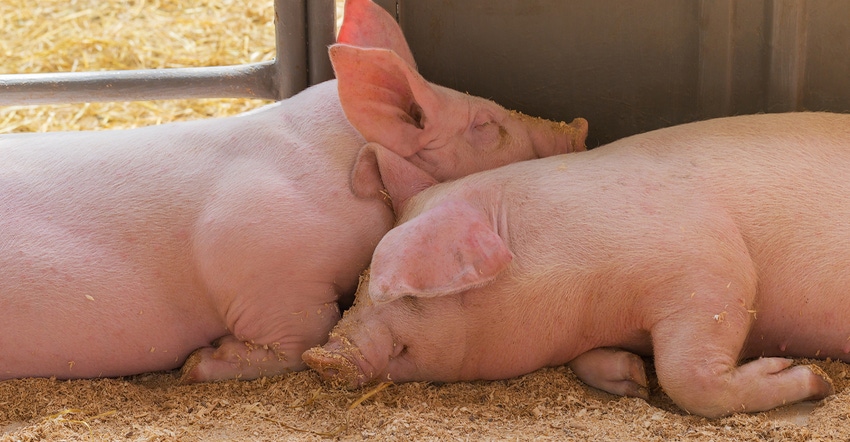June 28, 2019

We’ve all seen the headlines. African swine fever spreading from China; African swine fever in Vietnam; swine fever breaks out in South Africa. As a hog farmer, reading the updates each morning is jarring. When I’m faced with alarming news, I’m like many of you. I need to act and find something productive to tackle — one thing at a time.
That’s exactly what our team at the Missouri Department of Agriculture has been doing over the past year. Knocking off one biosecurity project after another, we are taking the lead in our state to help you — farmers, ranchers and agribusiness owners — be as prepared as we can be if African swine fever hits the U.S.
We’ve been working in lockstep with our partners at USDA’s Animal and Plant Health Inspection Service (USDA-APHIS) to not only develop a plan for what will happen if the disease is detected in the U.S. but also lay out protocol for how we can keep commerce moving in secure ways.
Disease’s effect
African swine fever is a highly contagious and deadly viral disease that affects both domestic and wild pigs of all ages. Thankfully, the disease is not transmitted to humans and pork products will continue to be safe to eat.
It is found around the world, particularly in sub-Saharan Africa. Most recently, it has spread through China, Mongolia and Vietnam, as well as parts of the European Union.
Producers like myself have been involved in the planning process from the start. We’ve also been practicing emergency scenarios alongside all the stakeholder groups that pork producers count on every day: National Pork Producers Council, Missouri Pork Association, University of Missouri Extension swine specialists and Missouri veterinarians.
Leadership teams at the local, state and national level will be prepared to get you the information you need to be successful.
Be ready
The Secure Pork Supply plan is a collaborative effort among the swine industry, state and federal government officials and university veterinarians that was led by USDA-APHIS and the pork checkoff.
In the event of a disease outbreak, having a SPS plan in place will be critical to restoring business operations on your farm. SPS is a voluntary program that will recommend biosecurity standards for your farm to protect your pigs and offer steps you can take to show your pigs can be moved without spreading disease.
If you have questions about getting a SPS plan in place at your farm, visit SecurePork.org and then call your herd veterinarian.
If you would like to request a National Premises Identification Number, you can contact our Animal Health Team at the Department of Agriculture for assistance.
To learn more about the symptoms of African swine fever, read African swine fever: Do you know the signs and symptoms?
I encourage all pork producers to get prepared today to protect their herd. Biosecurity is a team effort, and we need all parts of the supply chain to do their part.
What’s at stake
Make no mistake, Missouri’s pork industry is strong. We are home to more than 3.5 million hogs, which makes us seventh nationally for overall inventory.
Year after year, we see pork and pork products rise to the top of our agriculture export list. In 2017, that economic value was $376 million. That’s $376 million headed in some way back to our rural communities.
Hog farms have been proven to be a great way to bring the next generation of Missouri agriculture back to the farm. The latest USDA Census of Agriculture showed that 25% of hog farmers are younger than age 35.
We must do everything we can to protect Missouri agriculture so our farmers and ranchers can continue to support their small towns.
Chinn is the director of the Missouri Department of Agriculture and a hog producer from Clarence, Mo.
About the Author(s)
You May Also Like




